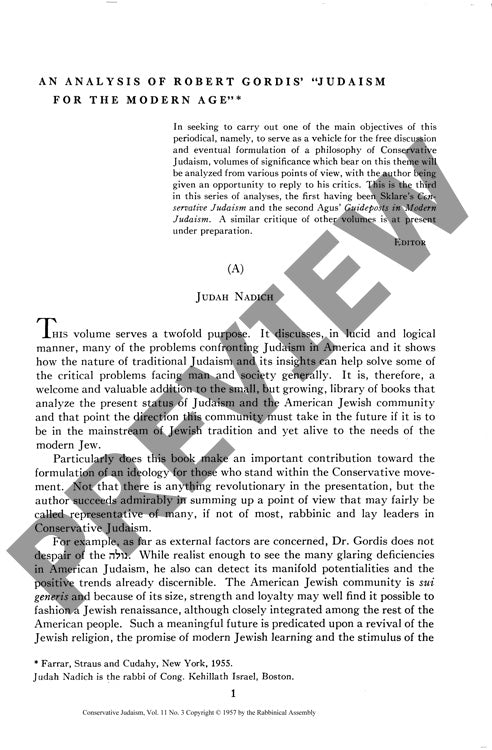An Analysis of Robert Gordis Judaism For
Couldn't load pickup availability
Conservative Judaism's struggle to balance tradition with modernity comes into sharp focus through divergent scholarly interpretations of Robert Gordis' "Judaism for the Modern Age." Two prominent Conservative Judaism scholars offer contrasting evaluations that reveal deeper tensions within the movement. Judah Nadich largely endorses Gordis' vision of Jews as a unique religio-cultural-ethnic entity and his dynamic understanding of Jewish tradition as an evolving system. Nadich particularly commends Gordis' approach to halakha as viable and adaptable through historical techniques of interpretation and legislation, while questioning the practical implementation of Gordis' modified "Catholic Israel" concept for determining religious authority. Shamai Kanter, however, challenges Gordis' framework, identifying conceptual ambiguities and outdated value-concepts that fail to address contemporary religious challenges. Kanter argues that Gordis' metaphorical framework of tradition as a "mainstream" or "tree trunk" oversimplifies the dialectical nature of Jewish religious discourse. These scholarly perspectives illuminate fundamental tensions within Conservative Judaism regarding the balance between tradition and adaptation, the nature of religious authority, and the conceptual frameworks necessary for addressing modern Jewish identity. While Gordis makes significant contributions to Conservative Jewish ideology, questions persist about the coherence and practical applicability of his synthetic approach to Jewish religious life in America.

More Information
-
Physical Description
-
Publication Information
Published 1957
ISBN
-
Publication Credits

